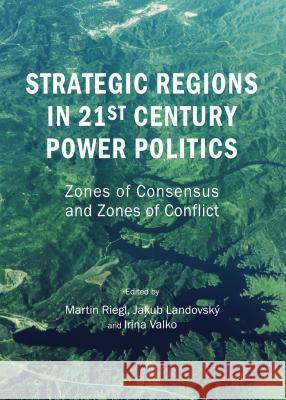Strategic Regions in 21st Century Power Politics: Zones of Consensus and Zones of Conflict » książka
Strategic Regions in 21st Century Power Politics: Zones of Consensus and Zones of Conflict
ISBN-13: 9781443866804 / Angielski / Twarda / 2014 / 290 str.
Resource wars, identity conflicts, disinformation, geostrategic rivalries, global power shifts, and an increasing number of non-state actors, make it difficult to analyse contemporary international relations. At the same time, contemporary power rivalries are increasingly affected by currency wars, economic diplomacy, competitive intelligence, economic warfare, indirect strategies, and state capitalism. The events in Ukraine in Spring 2014 reconfirm that Thomas Friedman's flattening of the world (based on the coincidence of the collapse of the Berlin Wall and the emergence of Netscape and the Web; workflow software; uploading; outsourcing; offshoring; supply-chaining; insourcing; in-forming; and "steroids" like Facebook and Instagram) goes hand in hand with the fact that, as postulated by Robert Kaplan, geography still matters in a global world. Globalization exists because of local processes, and local processes are ultimately shaped by globalization. Geography remains among the primary factors shaping a country's foreign policy. This book addresses the most fundamental geopolitical issues observable in a region where the 'great game' of geopolitics is particularly still alive in East- and South-East Asia. The contemporary geopolitical situation in this part of the world is far from stable: the width and depth of economic integration in the region resonates with the nature of political relations, crises in the global financial system, climate change, and the regional security architecture inherited from the Cold-War era. In terms of power relations, the particular changes in the region's status quo imply an immediate intensification of the PRC's activities within the framework of political and security dialogue with its direct neighbors, ultimately leading to a rivalry between China and the United States. The studies presented in this book largely focus on East- and South-East Asian actors and problems, while studies of the situation in other global regions enrich the research by adding a global dimension to the study of regional geopolitical affairs.











